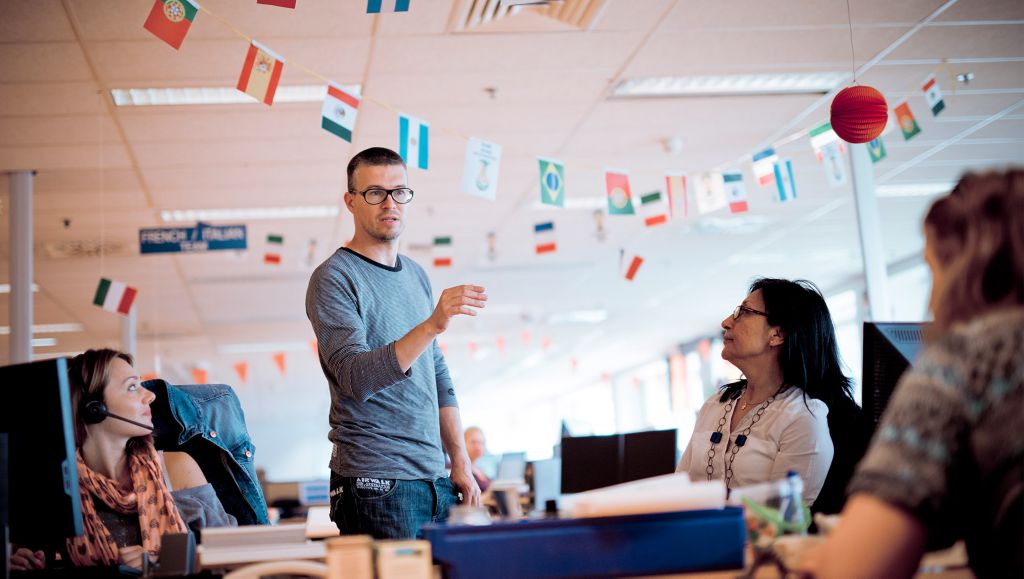First priority – keeping customers on the road


Uptime Solutions is the nucleus of the Volvo Group’s service operations and its team have a common objective: to help customers when their commercial vehicles need repairing or servicing and get them back on the road again as quickly as possible. This is where vehicle availability makes money for both the customer and the customer’s customers.
The term “uptime”, or availability, means making sure the time a vehicle is stationary is as short as possible. Gone are the days when a customer simply wished to purchase a vehicle; an effective service solution that guarantees a high level of uptime is now at least as important.
One of Volvo Group Trucks’ strategic objectives is to achieve 99 per cent uptime to meet customer requirements and strengthen customer relations. This is an internal objective to become even better at meeting customer demands and improving customer relations. Reaching this level calls for enhanced productivity, processes to avoid unplanned stoppages, speedy repairs and the effective planning of preventive maintenance so that vehicles are never stationary for a moment longer than necessary.
Staffed around the clock
Uptime Solutions is located at four sites within the EMEA (Europe, Middle East, Africa) region – Ghent (Belgium), Rugby (England), Lyon (France) and Johannesburg (South Africa). The office in Rugby also provides Uptime Solutions’ service to customers in Australia. As the Uptime Centres are staffed around the clock, 365 days a year, time differences are not a problem. Support today is provided to customers of most of the Volvo Group’s truck brands and business areas.
At the Uptime Solutions office in Ghent, the air is filled with the buzz of languages. Flags hang from the ceiling and the atmosphere is permeated by a pleasant intercultural feeling.
On the day shift, 25-30 people work here and, from midnight to 6 am, six people hold the fort. A vehicle can run into trouble at any time, but Uptime Solutions are always just a phone call away. The staff at the Ghent Uptime Centre are divided into four teams: Nordic, Eastern, Southern and Central.
Excellent language skills are required to do the job and all the staff speak at least four languages fluently. Some of them actually speak no fewer than eight. Each group has a team manager who supports the team and ensures that customers receive the best possible service.
“Nothing is impossible”
“The constant challenge for us is to keep customers satisfied. Nothing is impossible. Our role is not simply to secure that customers’ vehicles are repaired. We are also here to help customers with every aspect of their problems. It’s important to understand what’s most important for the customer. What does he want to fix first? I remember a case in which a truck carrying circus lions broke down.
Apart from getting help to repair the truck, the customer also asked our mechanic to bring raw meat to feed the lions! This goes to show that situations that deviate from normal working conditions are always going to occur. However, as I said before, we accept any challenge,” says Paul Martin, Director Uptime Solutions.
“Our target is that none of our customers should need to wait more than 20 seconds to speak to someone and that 96 per cent of all calls are answered. The customer has a contract with us and calls when he or she has a problem. Providing a good service calls for a mixture of creativity, communication and good technical solutions.
You can have the best process and technology in the world, but it’s engaged, motivated employees who determine whether or not you succeed. It goes without saying that vehicles have to be repaired, but we are dealing with people. We work with drivers, owners, technicians, fleet offices and many others, day in and day out. We need to get close to them and build confidence,” adds Paul Martin.